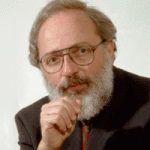Ron Baecker:
AI Deployments Accelerate Without Sufficient Intelligence: Opportunities for HCI Research
2018-03-27 12:30 at DGP: BCIT, 5th Floor
Abstract
After 35 years of ups and downs, AI finally achieved in the last two decades triumphs over the worlds best humans in chess, Jeopardy, Go, and poker. Accelerating advances in deep leaning technology now bring actual or promised deployments in speech and face recognition, judgments of human potential, medical image processing, driverless cars, and automated warfare. But are these systems truly intelligent?b Replacing simplistic definitions of intelligence with the more nuanced descriptions of Sternberg and Gardner suggests that the answer is no. Thinking about what we should expect of intelligent agents, we must acknowledge the lack of algorithms that can explain the logic behind their actions so that we can understand their behaviour. This is required so that we can trust them, delegate responsibility for actions and accountability for errors, and expect their decisions that are just. Removing these limitations will require a healthy dose of HCI research and user experience innovation. My goal with this talk is to encourage audience members to work on these issues.
Note: Ideas in this lecture are based in part on Chapter 11 of the forthcoming text: Computers and Society: Modern Perspectives, by Ronald M. Baecker, Oxford University Press, 2019.
Bio
Ronald Baecker is Director of the Technologies for Aging Gracefully Laboratory (TAGlab), Professor of Computer Science, and Bell Universities Laboratories Chair in Human-Computer Interaction.
The focus of TAGlab activities is R&D in support of aging throughout the life course including cognition, communication, and social interaction. Collaborators include individuals from Baycrest, Columbia Medical School, Sunnybrook Health Sciences Centre, and Toronto Rehabilitation Institute.
He is also Affiliate Scientist with the Kunin-Lunenfeld Applied Research Unit of Baycrest (formerly, Baycrest Centre for Geriatric Care), Adjunct Scientist with Toronto Rehabilitation Institute, and founder of the Knowledge Media Design Instituteat the University of Toronto. He has been named one of the 60 Pioneers of Computer Graphics by ACM SIGGRAPH, has been elected to the CHI Academy by ACM SIGCHI, and has been given the Canadian Human Computer Communications Society Achievement Award in May 2005. His B.Sc., M.Sc., and Ph.D. are from the Massachusetts Institute of Technology.
Professor Baecker is an active researcher, lecturer, and consultant on human-computer interaction and user interface design, user support, software visualization, multimedia, computer-supported cooperative work and learning, the Internet, entrepreneurship and strategic planning in the software industry, and the role of information technology in business. He has published over 175 papers and articles on topics in these areas. He is also the author or co-author of two published videotapes and of four books:
- Reading in Human-Computer Interaction: A Multidisciplinary Approach,
- Human Factors in Typography for More Readable Programs ,
- Readings in Groupware and Computer-Supported Cooperative Work: Facilitating Human-Human Collabortation , and
- Reading in Human-Computer Interaction: Towards the Year 2000 .
He is the co-holder of 2 patents. Professor Baecker was the founder, CEO, and Chairman of HCR Corporation, a Toronto-based UNIX contract R&D and technology development and marketing firm, sold in 1990 to a U.S. competitor. He was also the founder of Expresto Software Corp, a firm specializing in structured visual communication explaining software and other complex technology. Expresto Software was sold in 2002 to Caseware International. Another entrepreneurial venture was a virtual non-profit foundation within the University of Toronto to distribute and support the open source ePresence Interactive Media rich media webcasting and archiving system, which then led to the formation of a start-up delivering ePresence products, services, and solutions, recently sold to Desire2Learn. Most recently, he was instrumental in the founding of MyVoice.
More information about the 2017/2018 Tux presentation series is available on the official Tux website.



